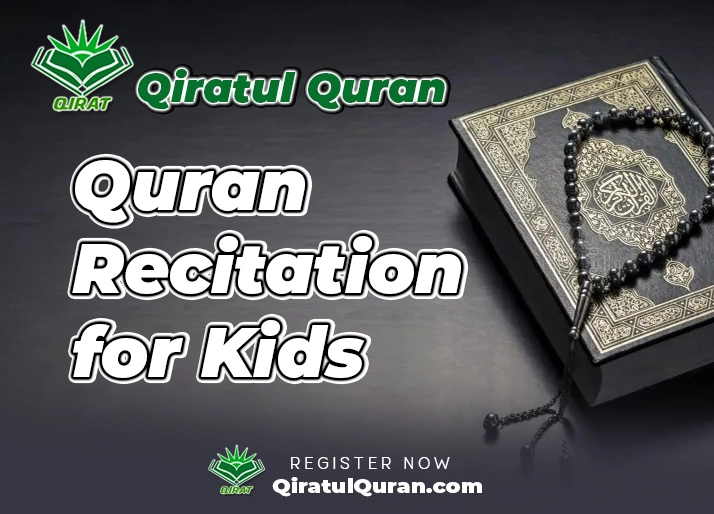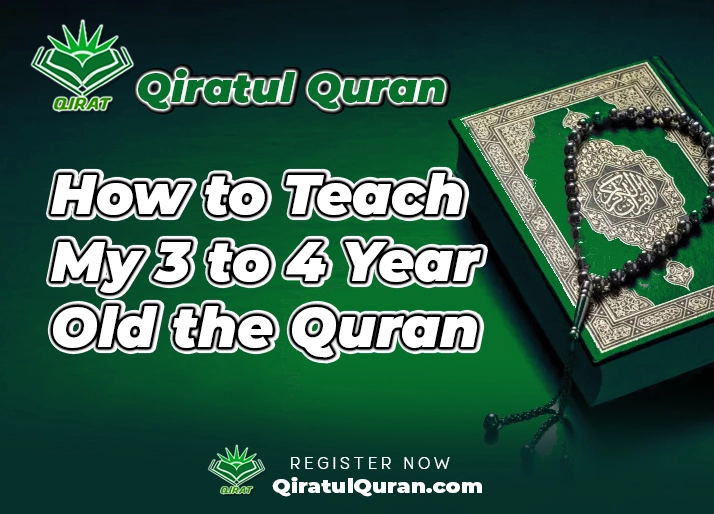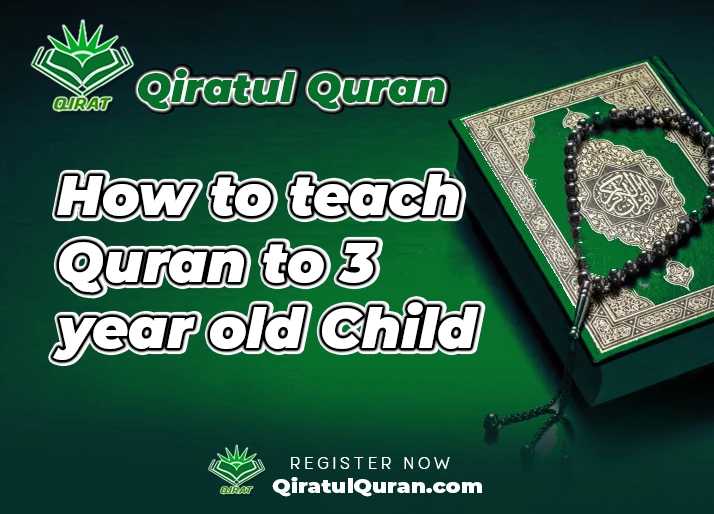Quran recitation for Kids: The Quran is the central religious text of Islam and is regarded as the word of God by Muslims. As the foundation of Islamic belief and practice, Muslim parents need to teach their children how to properly recite and understand the Quran from a young age. Learning to recite the Quran helps instill key values and traditions in children while allowing them to connect more deeply with their faith.

Getting Started with Quran Lessons in Qiratul Quran
When beginning Quran recitation for Kids in the Qiratul Quran, start by keeping sessions short to gradually build up their capacity for longer lessons. Even sessions as short as 10-15 minutes can be very productive if paced appropriately for your child’s age and abilities. Establishing a consistent routine and rewarding effort is also key when starting.
Creating a Positive Environment
Strive to make Quran lessons an enriching, positive part of your child’s day. Sessions should feel like special one-on-one time between parent and child. Give plenty of encouragement and praise when they put forth effort. If frustration arises, be patient and take a break if needed. Start each session on a positive note by expressing how much you look forward to their lesson.
Setting Developmentally Appropriate Goals
Ensure goals match your child’s maturation level. Start by having your child recognize letter sounds and shapes. As their skills develop, begin connecting letters to form words. Over time work towards reciting individual verses, then over multiple verses until full passages can be recited smoothly. Moving up to memorization of passages can be a rewarding subsequent goal.
Recitation Techniques for Children
Mastering proper recitation techniques will allow your child to accurately pronounce Quranic words and passages. While some rules may seem complex at first, there are simple methods for teaching them.
Letter and Word Pronunciation
Since Arabic letters and words contain unique sounds foreign to English, pronunciation can prove difficult initially. Isolate individual letters and words and have your child repeat them after you. Emphasizing proper pronunciation in standalone letters and words first will make phrases and passages flow better later on.
Applying Tajweed Rules
Tajweed refers to the rules governing proper Quran recitation with Maqamat. Key components include observing pause lengths between words, proper letters to emphasize within words, and reciting at a moderate pace. Guide your child through applying core Tajweed rules segment by segment, rather than all at once.
Develop Memorization Strategies
Memorizing Quran passages requires techniques to translate sounds into memorable content. Have your child identify meaning within verses to connect sounds with meaning. Also, utilize melody by reciting passages in a sing-song way to boost retention through engaging auditory senses. Periodically testing memorization retention ensures information fully settles into long-term memory for Quran Memorization for kids.
Note: Check out our Best Hifz classes for kids Quran Hifz for kids.
Continuing Progress Beyond Early Stages
The development of strong Quran recitation skills at a young age establishes the foundation for growth over the long term. However, recitation skills naturally decline without consistent practice and refinement. Maintaining progress requires structured guidance tailored to a child’s evolving abilities.
Enhancing Listening Comprehension
In parallel with recitation skills, work on developing listening comprehension of passages your child may not yet be able to fully recite themselves. For example, have them follow along in a Quran book while an instructor recites passages. Ask follow-up questions to check high-level understanding.
Addressing Skill and Knowledge Gaps
As passages become longer and more complex over time, gaps in prerequisite knowledge can arise resulting in memorization challenges down the road. Frequently check for understanding gaps related to passage meaning, pronunciation rules, etc. Addressing these early prevents slowdowns later.
Creating Milestones to Work Towards
Establishing milestone goals for Quran recitation for Kids provides children with tangible steps to work toward mastering advanced skills. Examples may include working towards reciting a particular surah, memorizing ayats on a new topic, or demonstrating greater independence reciting without as much instructor guidance. Milestones instill a sense of purpose.
Working towards ambitious milestones in Quran study requires a significant commitment from children. However, the profound value of Quran recitation makes the effort worthwhile for raising children with a strong Muslim identity. Commit to making Quran lessons a consistent part of their routine and the rewards will be substantial over the long run.
Note: Further more to Learn Quran Online Look into our Online Quran courses.





